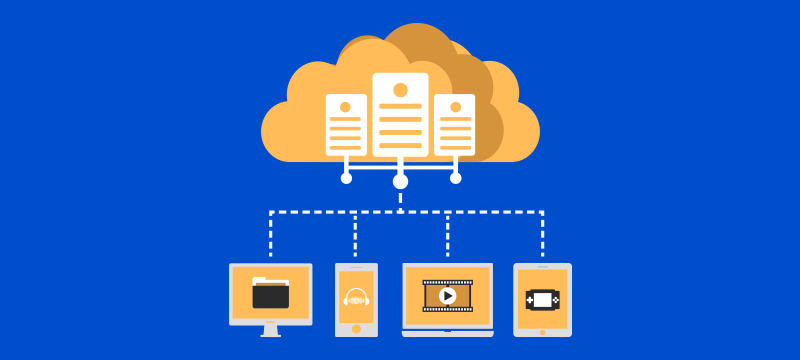Cloud hosting has revolutionized the way businesses manage their infrastructure by offering scalable and flexible solutions with reduced upfront costs. Cloud hosting offers numerous benefits that have made it increasingly popular among businesses of all sizes.
Here are four key benefits of cloud hosting:
- Scalability and Flexibility: One of the primary advantages of cloud hosting is its scalability and flexibility. Cloud infrastructure allows businesses to quickly scale their resources up or down based on demand. Whether you need additional computing power, storage space, or bandwidth, cloud hosting enables you to easily adjust your resources without the need for extensive hardware upgrades or downtime.
This flexibility is particularly valuable for businesses with fluctuating workloads or seasonal peaks, as they can efficiently allocate resources as needed, optimizing cost efficiency.
- Cost Efficiency: Cloud server hosting offers cost savings in several ways. First, it eliminates the need for substantial upfront investments in hardware, as businesses can leverage the cloud provider’s infrastructure instead. This significantly reduces capital expenses. Additionally, cloud hosting follows a pay-as-you-go model, where you only pay for the resources, you use.
This consumption-based pricing allows businesses to align costs with actual usage, eliminating the need for over provisioning. Moreover, cloud hosting eliminates the need for in-house IT infrastructure management and maintenance, reducing associated costs such as hardware upgrades, maintenance staff, and physical space requirements.
- Reliability and High Availability: Cloud hosting provides businesses with enhanced reliability and high availability. Cloud infrastructure is built with redundancy and fault tolerance, ensuring that even if a server or data centre experiences an issue, your services remain operational.
Cloud providers often have multiple data centres across different locations, enabling data replication and failover mechanisms to ensure continuous availability. This reliability and high availability are crucial for businesses that require uninterrupted operations, minimizing the risk of downtime and its associated costs.
Cost Aspects to Consider Before Choosing Cloud Hosting
- Pricing Models Cloud hosting providers offer various pricing models, each with its own advantages and considerations. The pay-as-you-go model charges you based on actual resource usage, providing flexibility and cost control. Reserved instances, on the other hand, require a fixed-term commitment but offer lower prices. Spot instances can provide significant cost savings, but they can be interrupted if demand increases. Understanding these pricing models and choosing the most suitable one for your needs is essential to optimize costs.
- Resource Usage The primary cost component of cloud hosting is resource usage, including compute instances, storage, data transfer, and additional services such as databases or load balancers. To avoid unnecessary costs, it is crucial to assess your resource requirements accurately. Over-provisioning resources can lead to inflated expenses. Regularly monitoring and optimizing resource usage is paramount to cost efficiency.
- Data Transfer Costs Transferring data in and out of the cloud can incur substantial costs. Cloud providers often charge for data transfer between different regions, availability zones, or across different services. Understanding these data transfer costs is particularly important if you have high data transfer requirements or if data transfers are frequent in your operations. Careful planning and optimization of data transfer can help mitigate these expenses.
- Storage Costs Cloud storage costs vary depending on the type of storage, such as block storage or object storage, and the amount of data stored. It is crucial to carefully consider your storage needs and access patterns. Frequently accessed data might incur higher costs than infrequently accessed or archived data. Understanding the different storage pricing tiers and optimizing data placement can help minimize expenses.
- Egress and Ingress Costs Egress costs refer to the charges associated with data transfer from the cloud to external networks, while ingress costs are incurred when data is transferred into the cloud. These costs can be significant, especially for businesses with substantial data transfer requirements. Evaluating your data flow patterns and estimating potential egress and ingress costs are essential to avoid unexpected expenses.
- Additional Services Cloud hosting often involves using additional services like databases, load balancers, content delivery networks (CDNs), or serverless functions. Each of these services may have its pricing structure and cost implications. It is crucial to take into account the costs of these services when assessing the overall expenses of cloud hosting. Evaluating the value and necessity of each additional service is essential to optimize costs.
- Vendor Lock-in Vendor lock-in is an important consideration when selecting a cloud web hosting provider. Switching providers or migrating applications can be complex and costly. Evaluating the long-term effects of vendor lock-in and the associated risks is crucial when considering the true cost of cloud hosting. Weighing the benefits against the potential drawbacks of vendor lock-in is necessary to make an informed decision.
- Cost Management Tools Cloud providers typically offer cost management tools to help businesses monitor and optimize their spending. These tools provide insights into resource utilization, suggest cost-saving measures, and enable budgeting. Leveraging these tools can help you gain better control over your cloud hosting expenses and make data-driven decisions.
Conclusion
Cloud hosting provides businesses with scalability, flexibility, cost efficiency, reliability, high availability, and robust security features. These benefits allow businesses to focus on their core operations while leveraging the cloud provider’s infrastructure and expertise. Understanding the true cost of cloud hosting goes beyond just the base pricing.
Considerations such as pricing models, resource usage, data transfer costs, storage costs, additional services, vendor lock-in, and cost management tools are vital for accurately assessing the expenses. By carefully analysing your requirements, regularly monitoring usage, and optimizing your cloud; you can successfully enjoy the benefits of cloud hosting while keeping expenses in check.
